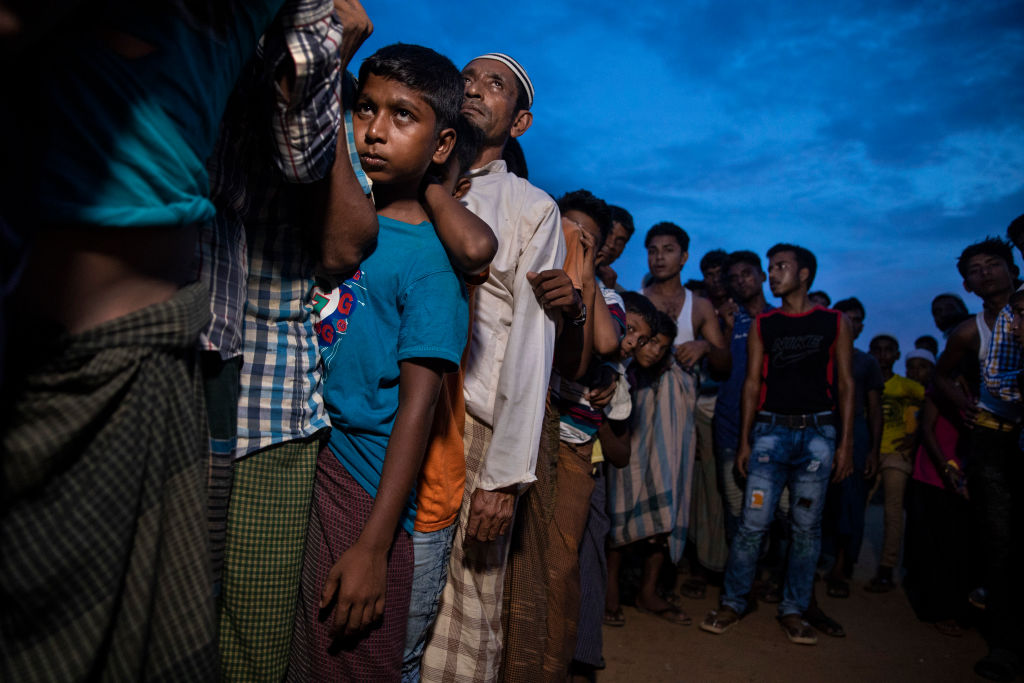After 10,000 Rohingya deaths and hundreds of thousands of exiles, a new United Nations report has found signs of “genocidal intent” in Myanmar, where the military has been persecuting the Rohingya Muslim minority.
The UN is calling for trials in the case of the prime offenders, including a group of generals — Soe Win, Aung Kyaw Zaw, Maung Maung Soe, Aung Aung and Than Oo — as well as the commander-in-chief.
Advocates have been warning that the situation in Myanmar appears to be approaching “ethnic cleansing” or “genocide,” but this report codifies the work of an independent fact-finding commission for the international community.
The members of the team have worked for over a year to document activities in Myanmar and beyond, and their evidence collection includes interviews as well as visual records. Their report was filed without official access to Myanmar, as the government refused to cooperate.
While international leaders may have had an excuse for failing to act before these atrocities came to light, this document puts pressure on them to hold Myanmar’s government and military accountable for continued human rights abuses.
The military has been claiming for years that it is engaged in routine operations to protect national security. Human rights advocates — and now the UN — maintain that this is clearly not the case. Instead, the Rohingya are being subjected to a targeted campaign of harassment and murder.
Myanmar’s military is burning down villages, beating people, shooting them, burning them to death and starving them — all after stripping the Rohingya of civil rights, like the ability to move freely through the country.
Those who are able to escape are pouring over the borders into neighboring nations, where governments are struggling to accommodate their needs. Meanwhile, Myanmar has been suppressing the press, making it challenging for journalists to report on what is happening. In fact, two Reuters journalists have been in prison since December 2017 for their reporting.
While military abuse is centered in the report, the authors note that these probable crimes against humanity would not be possible without the civilian government’s willingness to enable them. Aung San Suu Kyi, Myanmar’s current leader, is a Nobel Peace Prize laureate, and she has been criticized for failing to defend the human rights of this vulnerable minority community.
The UN Security Council is in a position to refer people for trial in the Hague, but there’s a problem: China and Russia are both friends to those in leadership, and they’re unlikely to participate in a vote that would lead to prosecution. The situation is complicated by the fact that Myanmar is not a signatory to the agreement that would make it subject to the oversight of the court.
Shortly after the UN report was released, Facebook took action on several prominent accounts, highlighting past criticism regarding its alleged role in the spread of disinformation and organizing materials in Myanmar. The social media giant also acknowledged that it had been named as a complicit party in the report. At a time when many are discussing the outsized role of social media as an influence on politics and society, this move is a reminder that advocating for better moderation policies and more responsibility at major tech companies is critically important for freedom and democracy.
